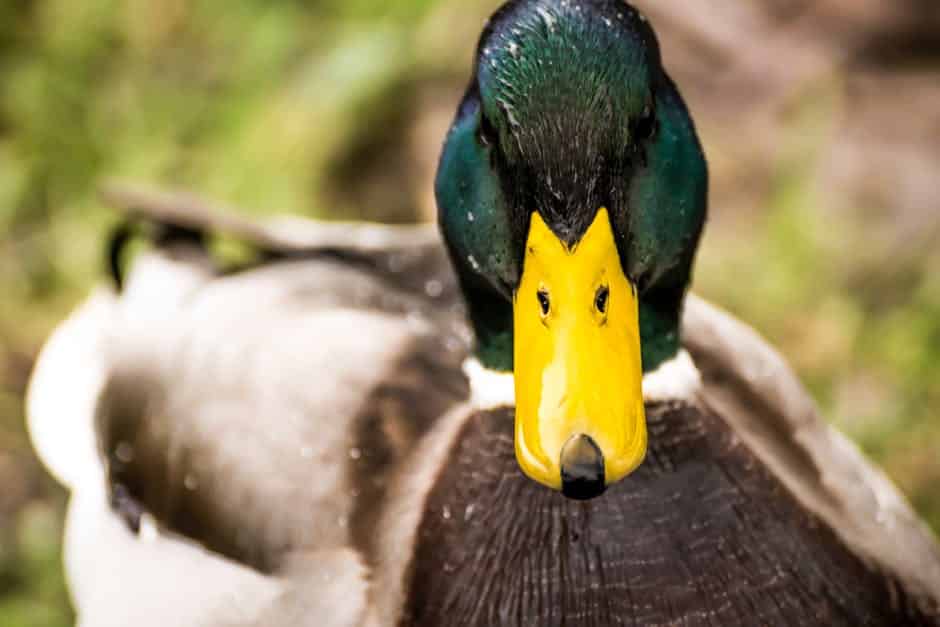If you have no idea how to use a duck call you are not alone. Most beginner duck hunters don’t know which duck call to buy, so they definitely don’t know when and where to use them. Luckily you’ll only need to learn a few basic calls to pull in a load of ducks. With a little duck call tuning and some practice, you’ll outperform even the most experienced hunters.
1. The Basic Quack Call
The bread and butter of every duck hunter should be the very basic quack call. Unfortunately there are a lot of hunters that don’t know how to perform this simple call. Most of them think the luck isn’t with them and never realize that they’re the reason ducks never enter their spread. One of the main points you need to master is completely finishing your quack call. Lots of people fall short and don’t make the complete call.
2. The Greeting Call
When you first see ducks you are going to want to try out the Greeting Call. The Greeting Call sounds easy enough it’s just a series of simple quacks in a row. In reality it’s difficult to get the exact natural rhythm down. You will want to do your greeting call when the ducks are close enough to easily hear you. Your call shouldn’t feel strained or tense. The Cadence is key to a good greeting call it should last 5-7 total quacks and should sound smooth. You’ll want to repeat the greeting call a few times to get the ducks attention. The Greeting Call should draw the ducks towards your position.
3. The Feeding Chuckle
You shouldn’t need to use the feeding call a lot. Your primary use of the feeding call will be to add variety to the other calls. The key to a decent feeding chuckle is going to be adding variety to your feeding call. In the wild ducks use almost a crazy feeding chuckle with lots of highs and lows. Some hunters like to use almost a rolling chuckle that seems like it hypnotizes them into your view. While others use more of a random chatter that has lots of ups and downs depending on the hesitancy the ducks show. One things for sure long feeding calls tend to sound a lot more natural to the hunter than the duck. So you’re going to want to use these sparingly.
4. The Comeback Call
Sometimes a flight of ducks shows interest in your decoys but they still seem wary. Then a few of them swoop down to check out your decoys but they’re still not totally convinced. Other ducks might be continuing without showing any interest. This is the time you are going to want to use the comeback call. The Comeback Call is an often misunderstood duck call. Beginner hunters often don’t understand when they need to use it so it’s often overlooked.
With your call you want to tell the ducks “come back and join me now”. The comeback call needs to be a forceful call to show the ducks they need to comeback immediately. When blown correctly at the right time the ducks will comeback and join your decoys. With a comeback call your first note is going to be loud and forceful to demand attention. With this type of call timing is everything. You’re essentially forcing the ducks to come back to you. The next time you see ducks that don’t want to commit try out a decent comeback call.
5. The Lonely Hen
The lonely hen call is a great call to use when you see birds that are hanging out circling. The lonely hen quack will make those ducks come in towards your decoys. Most people forget to use the lonely hen call but it’s actually an extremely effective call. This quack is nothing more than a drawn out spaced series of single quacks. The Lonesome hen call sounds almost like the basic quack call.
General Duck Calling Tips
- You should never call a duck that is directly above you. Calling a duck directly above you will allow them to pinpoint your position. Only call ducks when you can see that they are flying away from you or side to side. If they are flying directly towards you simply allow the ducks to come towards you. Calling ducks that are already flying towards you could abruptly scare them off.
- It is much easier to call ducks early on in the hunting season. So make sure you get out there as soon as you can. Later on in the season the birds tend to become a little bit call shy. This will severely hurt your chances of being successful. At the end of the season you won’t want to call as much to avoid scaring off the ducks.
- Make sure you try and vary your calls throughout the day. Try different things to see what works and what doesn’t. If what you’re trying doesn’t work just try a slight variation to see if it works any better. I also like to record my calls so I can listen to myself later. Your calls will sound slightly different to you on the recording.
Calling ducks is one of the most rewarding experiences in hunting. Putting in the practice in the offseason will directly impact how successful you are once the hunting season rolls around. Pulling a duck in towards your decoy is almost as rewarding as making a great shot.

